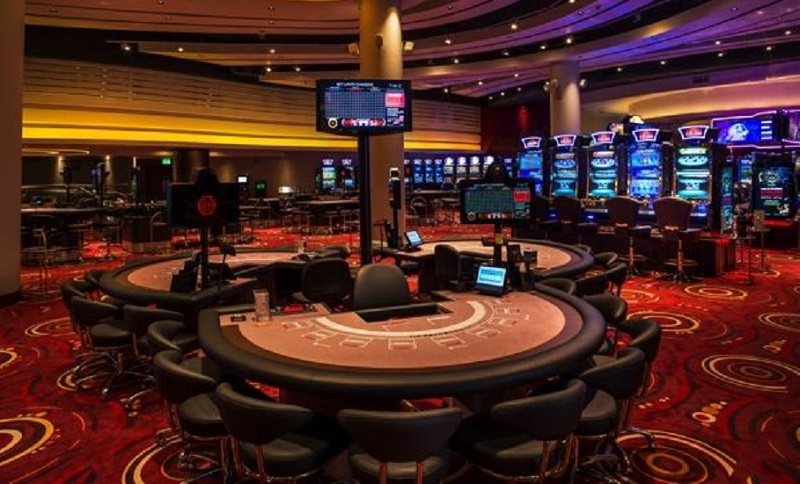
Casino experiences have long captured the imagination of individuals around the world, becoming an integral part of both entertainment and culture. From the sparkling lights of Las Vegas to the immersive experience of internet gambling, these games evoke excitement, uncertainty, and sometimes even a sense of nostalgia. They are beyond just hobbies; they have woven themselves into the texture of our lives, influencing various aspects from cinema and songs to clothing and writing.
The charm of casino games goes beyond the gambling aspect, tapping into wider themes of fortune, chance, and social interaction. As players gather around a card table or spin the wheel of fortune, they engage in an ancient ritual that resonates with our shared desire for thrill and unpredictability. This obsession has led to the growth of many references in films, music, and electronic games, showcasing how strongly entrenched these activities are in pop culture. Whether it is the high-stakes tension of a classic caper or the vibrant nightlife portrayed in recordings, casino games have carved out a substantial place that reflects our relationship with risk and reward.
Cultural Impact of Casino Activities
Casino games have played a crucial role in cultural contexts throughout the ages. Originating from old civilizations, games of chance were often connected to rituals or events. For instance, early iterations of gambling can be traced back to historic Chinese and the Romans, where dice games and wagering on results were popular pastimes. These activities not only functioned as entertainment but also as means of social interaction, facilitating relationships among people within societies.
As cultures evolved, so did the complexity and organization of casino games. The creation of official casinos in the 17th century, particularly in the Italian region, marked a notable shift in how games were perceived and organized. With specific spaces for gambling, the casino became a community center where people from various backgrounds gathered. This evolution contributed to the validation of the industry, transforming it from a mere pastime into an established industry that shaped economy and regulations.
The impact of gambling games on mainstream culture cannot be understated. As they were popularized in literature and film, games such as poker and 21 became symbols of chance, chance, and strategy. Iconic figures and narratives have emerged around these games, illustrating societal attitudes towards fortune, prosperity, and vice. Gacam888 This interest with casino games has infiltrated various forms of media, solidifying their status in the collective consciousness and connecting them to broader cultural narratives throughout the ages.
Representation of Gambling Games in Media
Casino activities have long been a popular subject in different types of entertainment, reflecting both the thrill and nuances of the world of gambling. Movies such as Ocean’s Eleven and Casino Royale portray figures who navigate dangerous scenarios, showcasing not only the appeal of the casino atmosphere but also the tactics and decisions that come with playing popular games like poker and 21. These films often dramatize the thrill of winning and the potential consequences of losing, encapsulating the risks involved in gambling.
Television shows have also explored the realm of gambling activities, often integrating them into the narrative as a context for story progression and drama. Shows like Las Vegas depict the experiences of casino workers and patrons, highlighting the dynamic, often chaotic energy of the gaming floor. Reality shows featuring high-stakes gambling competitions further emphasize the attraction of casino games, drawing viewers into the excitement and planning involved in each session. Through these representations, media not only entertains but also stimulates conversations about luck, expertise, and the nature of randomness.
Gaming have increasingly included gambling activities into their development, allowing players to simulate the experience of betting without monetary loss. Games within the realm of digital gaming often include online slot machines, online poker, and other casino favorites, creating an immersive gameplay that mirrors actual casino experiences. These virtual portrayals make casino games accessible to a global audience, appealing to both players who indulge and those who enjoy the rush of simulation. As a outcome, the portrayal of casino games in entertainment continues to shape cultural attitudes and importance, highlighting their place in society and the cultural landscape.
Effect of Gambling Activities on Communities
Gambling activities have a meaningful impact on communities, influencing multiple aspects of societal norms and interpersonal behavior. They often serve as a platform for social interaction, where people gather to enjoy a shared experience. Game nights with friends or trips to casinos become social activities that foster connections and create memories. This collective aspect boosts the fun value of casino games, making them a popular choice for festivities and recreational pursuits.
Additionally, casino games have been depicted in countless movies, television shows, and written works, influencing perceptions and attitudes towards gaming and betting. Icons like James Bond competing in baccarat or the high-stakes poker scenes in films have embedded these games in the collective imagination. This representation often idealizes the culture associated with gambling, drawing in new players and impacting trends in both fashion and behavior. These portrayals can spark curiosity and lead to a deeper exploration of the intricacies of gambling.
However, there are also adverse implications associated with the widespread appeal of gambling activities. The temptation of quick monetary gain can lead to problem gambling and financial troubles for some individuals. Society must grapple with these issues, promoting responsible gaming and education of the dangers involved. Finding a balance between the fun aspect of gambling activities with the potential for harm is crucial to ensure that they remain a positive aspect of our societal fabric.